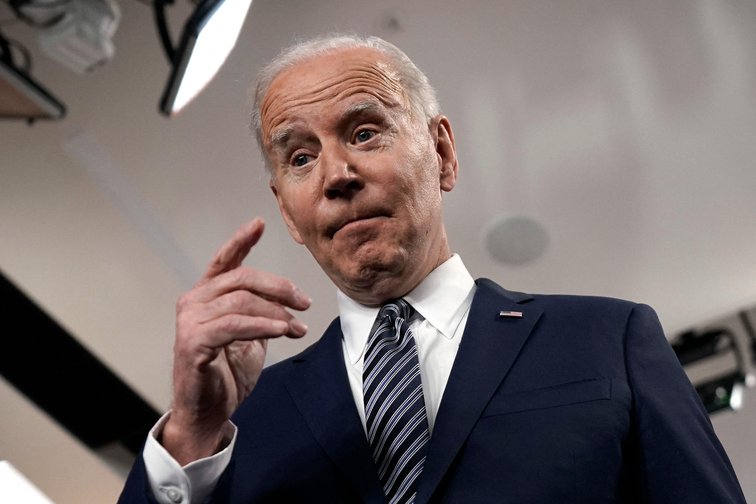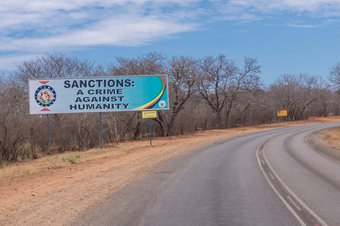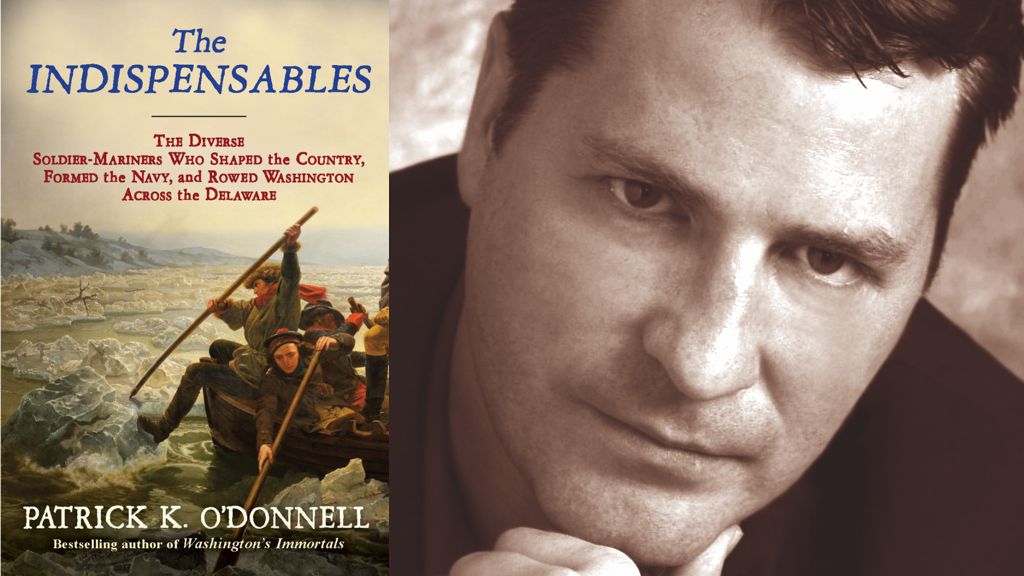"A state that privatizes most of its functions will inevitably defend itself by employing its own people as mercenaries-with equally profound strategic consequences. " Philip Bobbitt
- Iraq's Interior Ministry canceled the license of controversial American security firm Blackwater USA today after Iraqi officials charged that eight civilians were shot by company bodyguards accompanying a U.S. State Department motorcade the day before in Baghdad.
"It has been revoked," said Brig. Gen. Abdul Kareem Khalaf, a spokesman for the ministry. "They committed a crime. The judicial system will take action."
The decision marks Iraq's boldest step yet to assert itself against foreign security contractors, who arrived in Iraq after the U.S.-led invasion in March 2003. Blackwater has become the symbol of foreign gunmen accused by many Iraqis of speeding through Baghdad's streets and shooting wildly at anyone seen as a threat.
moral turpitude
1. depravity
2. (law) Any base or vile conduct, contrary to accepted morals, that accompanies a crime
turpitude
"depravity, infamy," 1490, from M.Fr. turpitude (1417), from L. turpitudinem (nom. turpitudo) "baseness," from turpis "vile, ugly, base, shameful," used in both the moral and the physical senses; of unknown origin. Perhaps originally "what one turns away from" (cf. L. trepit "he turns").
TURPITUDE - Everything done contrary to justice, honesty, modesty or good morals, is said to be done with turpitude.
Moral Turpitude is a legal concept in the USA, which refers to "conduct that is considered contrary to community standards of justice, honesty, or good morals"
Blackwater was founded by an extreme right-wing fundamentalist Christian mega-millionaire ex- Navy SEAL named Erik Prince, the scion of a wealthy conservative family that bankrolls far-right-wing causes.
Erik Prince was political at a very early age and watched as his father used his company as a cash-generating engine to fuel the rise of what we now know as the religious right in this country, as well as the Republican Revolution of 1994. His father gave the seed money to Gary Bauer to found the Family Research Council. Young Erik Prince was in the first crop of interns to serve at the Family Research Council. They gave significant funding to James Dobson and his group Focus on the Family, which is now sort of the premier evangelical organizing network in this country, the “prayer warriors.”Blackwater's president, Gary Jackson, and other business unit leaders are former Navy SEALs. Blackwater was founded and is owned by Erik Prince, who is also a former Navy SEAL.
Prince and Jackson are also major contributors to the Republican party. In addition, Prince was an intern in George H.W. Bush's White House and campaigned for Pat Buchanan in 1992.
Cofer Black, the company's current vice chairman, was the Bush adminstration's top counterterrorism official when 9/11 occurred. In 2002, he famously stated: "There was before 9/11 and after 9/11. After 9/11, the gloves come off." But Black is not alone, Blackwater has become home to a significant number of former senior CIA and Pentagon officials. Robert Richer became the firm's Vice President of Intelligence immediately after he resigned his position as Associate Deputy Director of Operations in fall 2005. He is formerly the head of the CIA's Near East Division.
In October 2006, Kenneth Starr, independent counsel in the impeachment case of Bill Clinton in 1999, represented Blackwater in front of the US Supreme Court in a case related to the March 2004 killing of four Blackwater employees in Fallujah, Iraq. In response to that event, Blackwater also hired the Republican lobbying and PR firm, the Alexander Strategy Group.
Ahmad Al-Rubaye / AFP / Getty ImagesBlackwater USA contractors secure the site of a roadside explosion in central Baghdad in 2005. The U.S. Embassy said that the Blackwater convoy accused of killing eight civilians during a shootout on Sunday had come under fire, and some local Iraqi television accounts reported an exchange of gunfire at the scene in Baghdad.
The Iraqi government said Monday that it was revoking the license of an American security firm accused of involvement in the deaths of eight civilians in a firefight that followed a car bomb explosion near a State Department motorcade.
Interior Ministry spokesman Abdul-Karim Khalaf said eight civilians were killed and 13 were wounded when contractors believed to be working for Blackwater USA opened fire in a predominantly Sunni neighborhood of western Baghdad.
"We have canceled the license of Blackwater and prevented them from working all over Iraqi territory. We will also refer those involved to Iraqi judicial authorities," Khalaf said.
The spokesman said witness reports pointed to Blackwater involvement but said the shooting was still under investigation. It was not immediately clear if the measure against Blackwater was intended to be temporary or permanent.
Blackwater, based in Moyock, N.C., provides security for many U.S. civilian operations in the country.
The secretive company, run by a former Navy SEAL, has an estimated 1,000 employees in Iraq and at least $800 million in government contracts. It is one of the most high-profile security firms in Iraq, with its fleet of "Little Bird" helicopters and armed door gunners swarming Baghdad and beyond.
The decision to pull the license was likely to be challenged, as it would be a major blow to a company at the forefront of one of the main turning points in the war.
The 2004 battle of Fallujah — an unsuccessful military assault in which an estimated 27 U.S. Marines were killed, along with an unknown number of civilians — was retaliation for the killing, maiming and burning of four Blackwater guards in that city by a mob of insurgents.
Tens of thousands of foreign private security contractors work in Iraq — some with automatic weapons, body armor, helicopters and bulletproof vehicles — to provide protection for Westerners and dignitaries in Iraq as the country has plummeted toward anarchy and civil war.
Monday's action against Blackwater was likely to give the unpopular government a boost, given Iraqis' dislike of the contractors.
Interior Minister Jawad al-Bolani called the shootings "a crime that we cannot be silent about."
Many of the contractors have been accused of indiscriminately firing at American and Iraqi troops, and of shooting to death an unknown number of Iraqi citizens who got too close to their heavily armed convoys, but none has faced charges or prosecution.
"There have been so many innocent people they've killed over there, and they just keep doing it," said Katy Helvenston, the mother of Steve Helvenston, a Blackwater contractor who died during the 2004 ambush in Fallujah. "They have just a callous disregard for life."
Helvenston is now part of a lawsuit that accuses Blackwater of cutting corners that ultimately led to the death of her son and three others.
The question of whether they could face prosecution is legally murky. Unlike soldiers, the contractors are not bound by the Uniform Code of Military Justice. Under a special provision secured by American-occupying forces, they are exempt from prosecution by Iraqis for crimes committed there.
Khalaf, however, denied that.
The embassy also refused to answer any questions on Blackwater's status or legal issues, saying it was seeking clarification on the issue as part of the investigation, which was being carried out by the State Department's diplomatic security service and law enforcement officials working with the Iraqi government and the U.S. military.
Is there even a license to revoke? Buzz on the contractor street is that it isn't clear how this development will affect Blackwater. Allegedly, Blackwater doesn't have a "license" to revoke, and its contracts with the State Department and CIA may not be immediately affected. This could play out in an interesting (albeit depressing) powerplay between the al-Maliki, Iraq's Ministry of Interior, and the U.S. Government.
The issue of accountability is a troubling one, however, as Scahill reveals the Blackwater operatives are essentially above the law in Iraq. They can’t be prosecuted under military law because they’re civilians. But they have little to worry about from civilian law in the chaos of Iraq.
At one point in the book, a politician confronts a military official and claims Blackwater agents can get away with murder, and the official more or less admits he’s right. It’s a point that’s highlighted by another video featuring an alleged mercenary shooting people at random on a highway in Iraq (YouTube link).
It was inevitable. Private military contractors have been involve din all sorts of questionable incidents, since the very start of the Iraq enterprise. U.S. military officers frequently expressed their frustrations with sharing the battlefield with such private forces operating under their own rules and agendas, and worry about the consequences for their own operations. For example, Brigadier General Karl Horst, deputy commander of the US 3rd Infantry Division (responsible for Baghdad area) tellingly put it two years back, “These guys run loose in this country and do stupid stuff. There’s no authority over them, so you can’t come down on them hard when they escalate force. They shoot people, and someone else has to deal with the aftermath.” Karel Prinsloo/AP, FileA U.S. private security officer, with his face covered against dust, on board a Chinook helicopter in Iraq.
Karel Prinsloo/AP, FileA U.S. private security officer, with his face covered against dust, on board a Chinook helicopter in Iraq.Blackwater Guards Accused of Past Deaths
NEW YORK (AP) — In the past year, employees of the Blackwater USA security firm have been involved in other incidents in which they were accused of killing civilians and security forces in Iraq.
On Dec. 24, 2006, a drunken Blackwater employee shot and killed a bodyguard for Iraq's Shiite vice president, Adel Abdul-Mahdi, according to Iraqi and U.S. officials.
The contractor had gotten lost on the way back to his barracks in the Green Zone and fired at least seven times when he was confronted by 30-year-old Raheem Khalaf Saadoun, an official in the vice president's office said on condition of anonymity because the case is still under investigation.
The contractor fled after the incident. Eventually, he made his way to the U.S. Embassy, where Blackwater officials arranged to have him flown home to the U.S., said American officials.
Blackwater spokeswoman Anne Tyrrell said earlier this year the company was cooperating with investigators from the Justice Department and the FBI. She declined to provide further details.
In May, Blackwater guards under contract to the State Department were involved in two other shootings in Iraq.
In one, a Blackwater guard shot to death an Iraqi deemed to be driving too close to a security detail near the Interior Ministry in Baghdad, enraging Iraqis. At the time, Tyrrell said the guard acted lawfully and appropriately, given the incident reports and witness accounts.
A day earlier, Blackwater guards and Interior Ministry forces exchanged gunfire on the streets of the capital. A passing U.S. military convoy intervened and stopped the fighting.
The Nation's Jeremy Scahill describes the rise of Blackwater USA, the world's most powerful mercenary army.
"As the government of the United States is not, in any sense, founded on the Christian religion; as it has in itself no character of enmity against the laws, religion or tranquility of Musselmen (Muslims) ... it is declared ... that no pretext arising from religious opinion shall ever product an interruption of the harmony existing between the two countries....
"The United States is not a Christian nation any more than it is a Jewish or a Mohammedan nation."
-- Treaty of Tripoli (1797), carried unanimously by the Senate and signed into law by John Adams (the original language is by Joel Barlow, US Consul)
SEE:
IRAQ- THIS WAR IS ABOUT PRIVATIZATION
Bad News For Bush
U.S. Supplies Iraqi Insurgents With Weapons
Surge Blackout
Find blog posts, photos, events and more off-site about:
Iraq, contractor, privatization,
Bush, Wolfowitz, Rumsfeld, Cheney, USA, war, KBR, Halliburton
a href="http://tagcentral.net/?tag=President" bush="" rel="tag">President Bush,
infaltion, recession, USeconomy, USA, economy, banks, war, Erik Prince, Iraq, Fallujah, military, Blackwater USA, mercenaries, contractors, Green Zone, economics, Halliburton, Bechtel,












 © 2013 Ehi
© 2013 Ehi